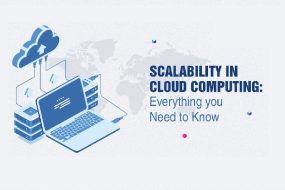
In the ever-evolving landscape of cloud computing, the battle of the titans rages on. Multi-cloud hosting has emerged as a leading strategy for organizations looking to maximize their IT infrastructure’s efficiency and reliability. As we delve into the post-September 2021 landscape, we witness a dynamic industry landscape with major players vying for dominance. In this comprehensive analysis, we dissect the offerings and capabilities of the top multi-cloud providers, exploring their strengths, weaknesses, and how they stack up against one another.
The Evolution of Multi-Cloud Hosting
Multi-cloud hosting, a strategy that involves using multiple cloud service providers to meet different needs, has gained immense popularity. Post-September 2021, the multi-cloud ecosystem has seen remarkable changes, with providers continually enhancing their services.
The Rise of Hybrid Multi-Cloud
A significant development is the ascendancy of hybrid multi-cloud solutions, offering a blend of public and private cloud services. Leading providers now offer seamless integration, allowing organizations to harness the best of both worlds.
Increased Focus on Security
With cybersecurity threats becoming more sophisticated, providers have invested heavily in bolstering their security measures. Post-September 2021, we’ve seen robust encryption, threat detection, and compliance features being incorporated.
AWS: The Goliath
Amazon Web Services (AWS), often considered the pioneer in cloud computing, continues to hold a prominent position in the multi-cloud landscape. With a vast array of services and a global reach, AWS remains a formidable force.
Strengths of AWS
Expansive Service Portfolio: AWS boasts a wide array of services, from computing and storage to machine learning and IoT, catering to a broad spectrum of user needs.
Global Data Centers: A sprawling network of data centers across the world ensures low latency and high availability.
Ecosystem and Partnerships: A robust ecosystem of third-party tools and extensive partnerships give AWS an edge.
Weaknesses of AWS
Cost Management: While offering a broad range of services, managing costs can be challenging, and cost overruns are not uncommon.
Complexity: The sheer scale of AWS can be overwhelming for smaller organizations.
Azure: Microsoft’s Contender
Microsoft’s Azure has made significant strides in recent years, positioning itself as a viable alternative to AWS.
Strengths of Azure
Hybrid Capabilities: Azure’s strong integration with on-premises systems appeals to enterprises seeking a hybrid approach.
Enterprise Focus: Azure’s robust support for Windows environments and comprehensive enterprise solutions are highly attractive.
Developer-Friendly: Azure offers a developer-friendly platform with a wide range of development tools.
Weaknesses of Azure
Learning Curve: Navigating the Azure platform can be complex for newcomers.
Geographical Coverage: While extensive, Azure’s global network doesn’t match AWS in reach.
Google Cloud: The Innovator
Google Cloud has been a relentless innovator, emphasizing machine learning, data analytics, and containerization.
Strengths of Google Cloud
Machine Learning Capabilities: Google’s expertise in AI and machine learning sets it apart, making it a go-to choice for data-intensive applications.
Big Data Solutions: Google Cloud’s data analytics and BigQuery are powerful tools for businesses dealing with large datasets.
Kubernetes Expertise: Google’s leadership in Kubernetes is a significant asset for containerized applications.
Weaknesses of Google Cloud
Market Share: Google Cloud lags behind AWS and Azure in market share.
Lack of Enterprise Tradition: Google is still working on gaining the trust of enterprises.
IBM Cloud: A Legacy Reinvented
IBM Cloud, once seen as a traditional enterprise player, has revamped itself to cater to the modern cloud landscape.
Strengths of IBM Cloud
Red Hat Acquisition: IBM’s acquisition of Red Hat has strengthened its position in the hybrid and open-source cloud market.
Enterprise Focus: IBM Cloud is a strong choice for organizations with a legacy IBM environment.
AI and Blockchain: IBM’s focus on AI and blockchain technologies provides unique offerings.
Weaknesses of IBM Cloud
Complex Pricing: IBM Cloud’s pricing can be intricate and challenging to decipher.
Smaller Market Share: IBM Cloud faces stiff competition from more prominent players.
Oracle Cloud: Database Dominance
Oracle Cloud focuses on database services, aiming to provide unmatched performance and security.
Strengths of Oracle Cloud
Database Prowess: Oracle’s database services are unparalleled in terms of performance and security.
Integration with Oracle Software: Ideal for organizations heavily invested in Oracle software.
Autonomous Database: Oracle’s autonomous database technology reduces administrative overhead.
Weaknesses of Oracle Cloud
Limited Service Portfolio: Oracle Cloud’s service range is more specialized compared to its competitors.
Lagging in AI and Machine Learning: Oracle is working on catching up in these domains.
Final Words
In the post-September 2021 landscape, the choice of a multi-cloud provider depends on your specific requirements and objectives. AWS remains the behemoth, while Azure is the enterprise favorite. Google Cloud leads in innovation, IBM Cloud offers unique hybrid solutions, and Oracle Cloud excels in databases.
Commonly Asked Questions
Q1: Is multi-cloud hosting suitable for small businesses?
A1: Yes, multi-cloud hosting can benefit small businesses by providing cost-effective solutions and flexibility.
Q2: Which multi-cloud provider is the most cost-effective?
A2: Cost-effectiveness depends on your specific needs. AWS, Azure, and Google Cloud offer various pricing options.
Q3: How do multi-cloud providers ensure data security?
A3: Multi-cloud providers implement robust security measures, including encryption, monitoring, and compliance certifications.
Q4: What is the future of multi-cloud hosting?
A4: The future holds more integration, automation, and seamless management across multiple cloud providers.
Q5: Can I switch between multi-cloud providers easily?
A5: While it may involve some challenges, many organizations successfully migrate between multi-cloud providers with proper planning.
Advertisement







